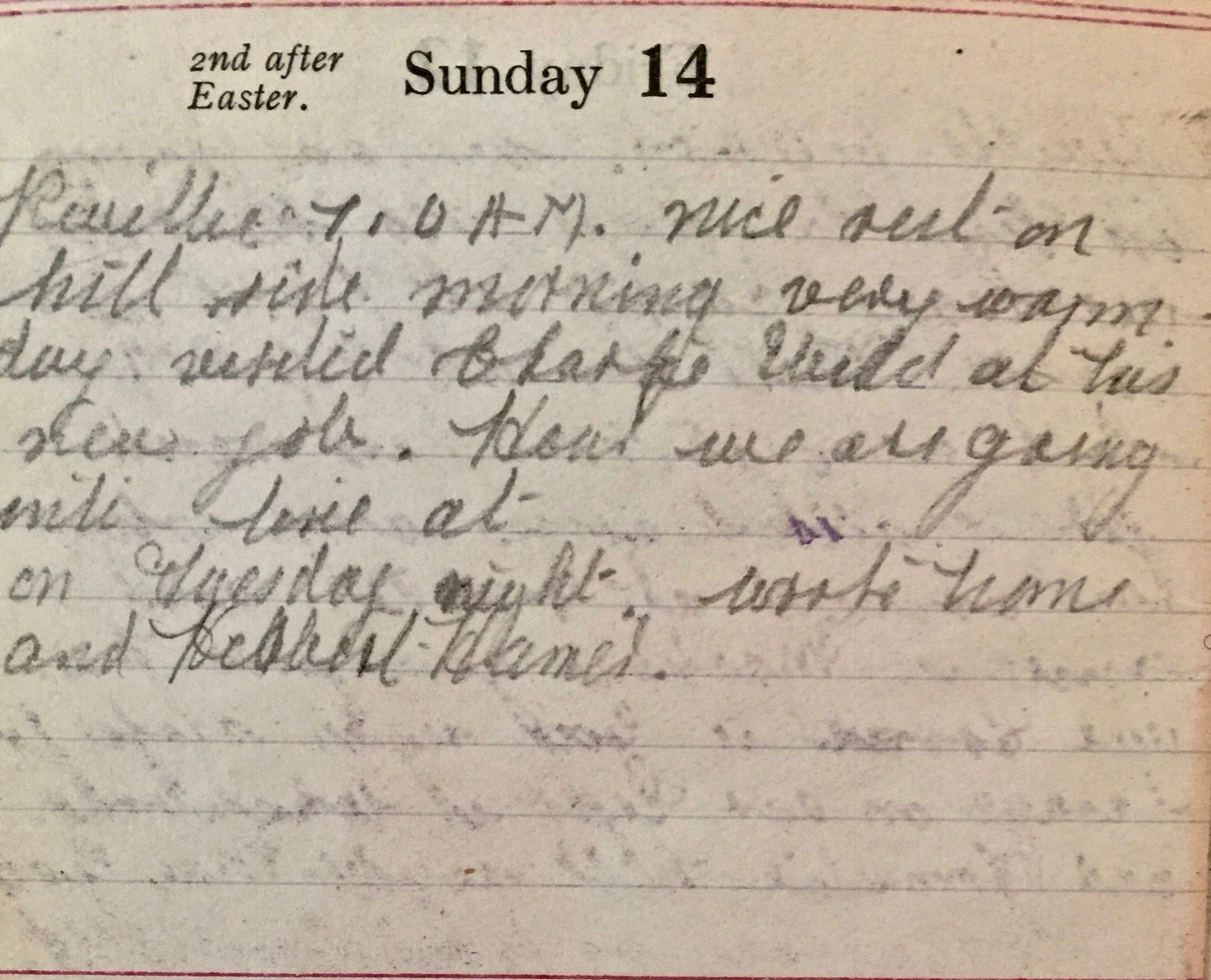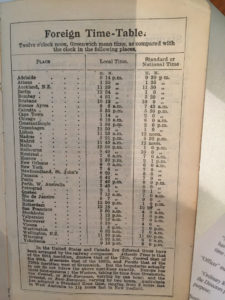Sunday April 14th, 1918
Reveille 7am. Nice rest on hillside in morning. Very warm day. Visited Charlie Wild at his new job. Hear we are going onto line at ……… [deliberately blank – Ed.] on Tuesday night. Wrote home and Herbert Hamer.
Diaries
Despite the number and variety of diaries that were kept during WWI, they were actually frowned upon at the time. The authorities were frightened of anything that the enemy could capture that might shed light on any aspect of their campaign, including plans, troop locations and morale. Diaries, if they fell into the wrong hands, could be gold mines to the enemy.
This is probably why Frank left a deliberate space in his diary today rather than naming his rumoured destination. Similarly Arthur Linfoot, who kept a diary from 1914-1918, wrote his entries in Pitman’s Shorthand.º
Diary manufacturers seemed to pay little heed to the Army’s concerns, ‘… Charles Letts produced a range of pocket editions that could easily be carried in the jacket pocket, and even marketed ‘The Soldier’s Own Diary’ for the war years from 1915 to 1919. It was packed with information such as the semaphore alphabet, the main ranks of the Army … and each page also carried useful tips and simple facts, such as how to make bridges, and what the penetrating power of a bullet was.’¹
GMT
Frank wrote in a Collin’s Ruby Diary, Number 263 for 1918. It doesn’t have any overt military information on its printed pages. However, it is useful to a soldier abroad. One page that Frank has already made use of is ‘Foreign Money‘ – having now received his pay in both French Francs and Greek Drachma.
Another page of interest is ‘Foreign Time-Table’ (see image) which shows twelve o’clock noon, Greenwich mean time (GMT) against clocks in a variety of places around the world. What is interesting is that the time difference is to the minute rather than hour. For example, Athens and Greece are shown at 1 hour 35 minutes ahead of GMT and Malta is shown at 12.58pm local time and 1pm standard or national time.
Standard time across regions and countries began in the 19th century, partly at the prompting of the railway companies to allow them to create effective timetables. Time zones against GMT were gradually adopted by countries, starting with the UK in 1848, the USA and Canada in 1883, and Greece in 1916. ‘It took many decades before all time on Earth was in the form of time zones referred to by some as “standard offset” from GMT/UTC (Coordinated Universal Time). By 1929, most major countries had adopted hourly time zones.’ ²
13th (Service) Battalion War Diary – 14th April 1918 – Saida
Church Services in Brigade Canteen Saida. RC confessions from 08:15, Mass at 09:15 hrs. CofE Morning Prayers at 10:00 hrs followed by Holy Communion at 10:30 hrs. Nonconformist Service at 10:30 hrs in Ravine opposite HQ. Lt Col B Crudas (Northumberland Fusiliers) Commanding 9th (S) Bn South Lancs Regt in No 4 Sector, came to visit the work on Commandant prior to being relieved. Operation Order No 35 (Appendix No 4) issued: the Bn will relieve the 9th (S) Bn South Lancs Regt in No 4 Sector on the night of the 16th/17th inst. No work today (Sunday). 8th KSLI relieved the 12th Cheshire Regt in No 3 Sector.
References & Further Reading
º ‘The Diary of Arthur C Linfoot‘
¹ ‘What Tommy Took to War: 1914-1918’ by Peter Doyle and Chris Foster, page 98
² ‘Time Zone‘ on Wikipedia
‘Universal Time‘ on Wikipedia




One thought on “Diaries & GMT – April 14th, 1918”
Comments are closed.